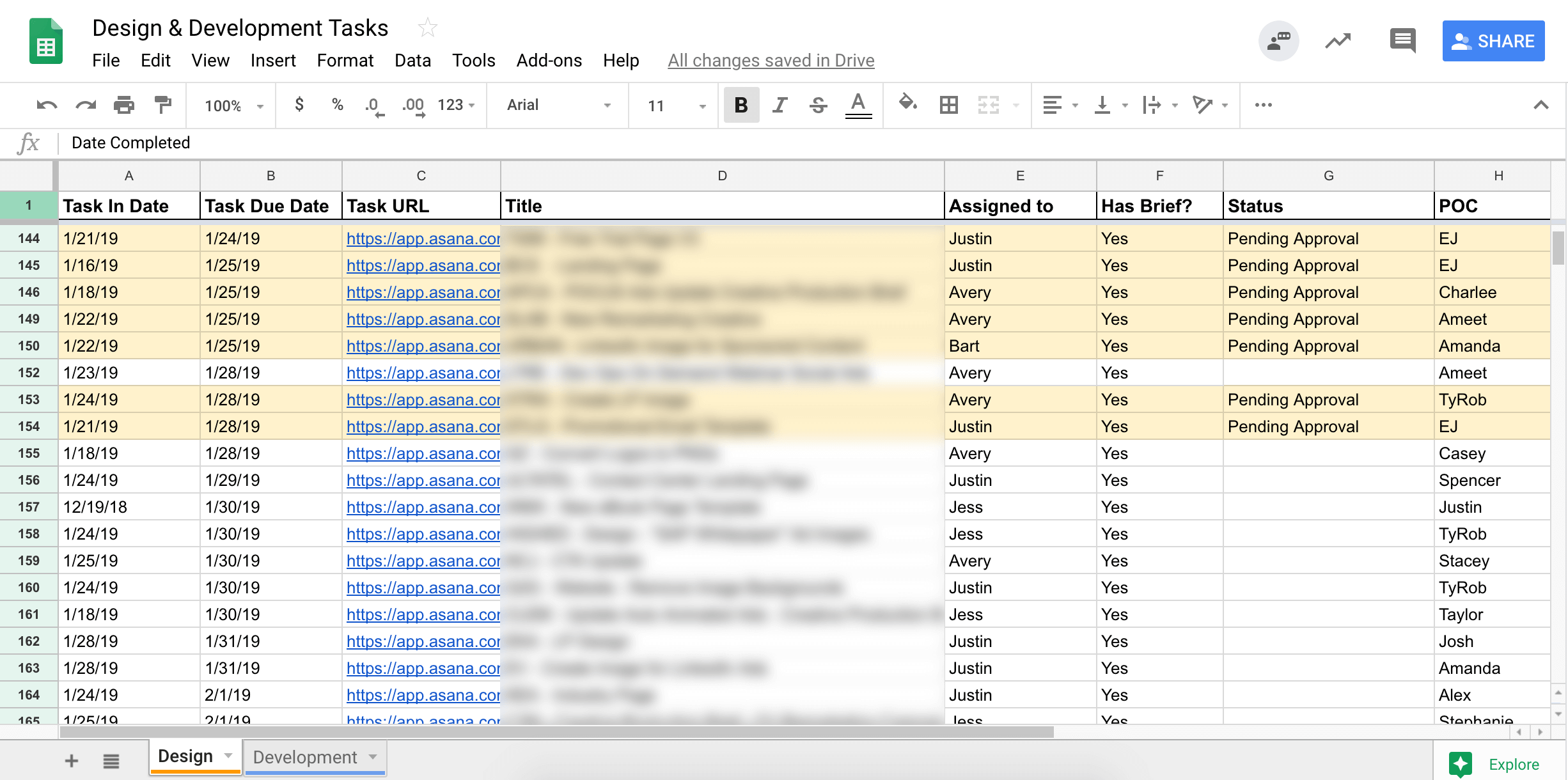
Project management for beginners: The ultimate guide
Since my last article on my first year as a female web developer, I’ve worked for nearly three years at WebMechanix. I’ve now transitioned to a role as a developer and project manager. This article is about project management for beginners; it’ll serve as your guide to understanding what a project manager is, why they’re important, my experience with the role, and some tips to help you on your path.
What is project management?
Even though I’m defining a phrase by that phrase, project management is about… well, managing projects. That said, you’re also managing budgets, tasks, due dates, people—all of the things that go into a project—and making sure that they all come together and get completed harmoniously.
Why is project management important?
Project management keeps people accountable, helps achieve a common goal, and ensures that a project stays on track. Importantly, it prevents projects from being completed late or over budget. It’s always good to have somebody overseeing things, not for the sake of micro-management but rather to keep track of things.
My transition from developer to project manager
When Dave Brong (our CTO) and I first talked about moving into a project manager (PM) role, I told him I’m interested because I’m nosy. I like to know what’s going on, when we’re going to be busy, when we’re not going to be busy, and when things are going to be finishing or coming our way. I say nosy, but being a PM also helps me know what to expect in the coming weeks and months so I can plan accordingly. So in that sense, nosiness is appreciated.
I’ve moved from 100% development work to now 50/50 development work and project management. In the beginning, the change was overwhelming and scary at times because I had so much to do and so many people to talk to.
It took me about six or seven months to get comfortable in the day-to-day. I knew nothing about project management; in retrospect, I wish I had this project management for beginners guide when I started. I was learning from the bottom up about what project management is while continuing my development work—doing trainings and anything else to gain knowledge in the subject outside of work or in the hour or two that I had during the workday.
What does a project manager do on a daily basis?
I do project management on a project basis, such as for website redesigns and migrations—anything related to development, really. I also manage our development queue, which is a project in itself. That entails making sure that everyone fills out all the task details properly and, once that’s done, assigning the tasks to whoever will be working on them.
Recently, I’ve also stepped up to delegate creative tasks through the design queue. Bart Heird, our Creative Director, still overseers every creative task. I make sure things aren’t slipping through the cracks and tasks are finished by their due date—stuff like that. It’s not far out of my realm since I’m not doing the design work; I’m just delegating as I do with the development queue. That delegation helps take some of the load off of the creative team.
How to be a better project manager
Don’t micro-manage. Please. I don’t know anybody who likes micro-managers. I’m not saying it makes you a bad PM if you choose to handle things that way, but it certainly makes you someone who’s difficult to work with.
A great PM makes sure that employees complete projects on time and on budget (or under budget). This person also understands that some projects can go over budget as long as the client is still happy in the long run. A project can sometimes be delivered a week late due to circumstances that may or may not be in your control; however, if you’re providing a great product, the client will be understanding of that.
Two traits make a great project manager: understanding and patience. You need understanding to deal effectively with new people, and to grasp the details of the project that you’re in charge of. I understand that it’s going to take time to learn how to submit new tasks, and that understanding helps ease some of the pressure off the developers I oversee.
The job definitely requires patience. When it’s the same person failing to submit tasks properly over and over again, project management can get frustrating.
Fortunately, there are some things you—or at least your developers—can do to minimize that frustration.
How to make a project manager’s life easier
To make the life of a project manager easier, make sure all your ducks are in a row. Finish tasks and projects promptly. Follow the task templates and production brief standards. Asking questions about a project/task that you’re working on is beneficial as well, so you’re well versed in what needs to be accomplished.
The development queue is an enormous, ongoing project for PMs. We’re constantly getting new input from people. Plus, everyone thinks and writes differently and has different expertise. Therefore, we need to figure out the best way to get all the tasks needed to finish a project.
I used to get incomplete task details. For example, if development gets a task to fix something broken on a website, I’d receive a screenshot but no URL, or vice versa. I’d have to reply and wait for that information, which derails everything.
That’s partially why we recently rolled out a production brief process. The brief is a Google form that asks questions to create a PDF with the necessary information for a task. This process ensures that I have all the information upfront so my team can work more effectively. Hence, make sure all the details are in the description of the task you submit.
Before we implemented this production brief, which is for all development and creative tasks, we had a creative brief which was for all creative tasks. From experience, the creative brief also works.
Project management tips on productivity and delegation
Use templates
We have Asana project templates for website redesigns. They make me more efficient at my job and save me time because I can copy a template and stick it in a new project rather than re-creating a bunch of tasks over and over for each new project.
Track tasks with a spreadsheet
To check in on tasks, I use a running Google spreadsheet. I list out the design and development tasks in separate sheets. When I receive a task, I add the details of that task to the sheet, which includes:
- Who the task is assigned to;
- Who assigned the task;
- A link to the Asana task;
- The due date for the task;
- The status of the task; and
- Any other details provided.
Here’s an example of what that looks like:

As a task progresses, I change the status. When tasks go past their due dates, I gently poke the person assigned to them. Once a task has been completed, it becomes hidden from the spreadsheet (ah, sweet relief!).
[resource_modal_button form_id=”69a3ef7f-b042-4696-beab-8c547ee97412″ file_url=”https://cdn2.hubspot.net/hubfs/297156/Blog%20assets/Project%20Management%20Task%20Tracking%20Template.csv” button_text=”Want more help? Get a free task tracking spreadsheet.” xclass=”btn-orange”]
Know your team
To become a better delegator, you need to know your team. I worked with my team for two years before becoming a PM. This experience helped me understand everyone’s capabilities and speed of work, which helped me learn how to manage my team effectively.
When new people come on, you need to be more easygoing in terms of assigning tasks and blowing up their Asana task list. Be more understanding with new team members until you’re able to figure out their skill set and how long it takes for them to finish tasks.
Parting tips for young professionals considering project management
I would suggest that anyone considering PM as a career read this project management for beginners guide, and to do their research on the numerous types of PM paths out there to figure out which way they want to go.
When I originally started moving into the PM role, I was looking into the Project Management Professional (PMP) certification, but it didn’t suit my role here. That said, I don’t think getting a PMP certification would hurt you in any way if that’s what you want—it would still benefit you.
What’s your experience been like with project management? Is this a field you’re interested in getting into? Let me know in the comments below!
Most newsletters suck...
So while we technically have to call this a daily newsletter so people know what it is, it's anything but.
You won't find any 'industry standards' or 'guru best practices' here - only the real stuff that actually moves the needle.







